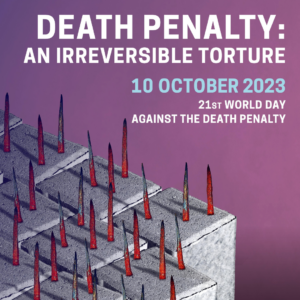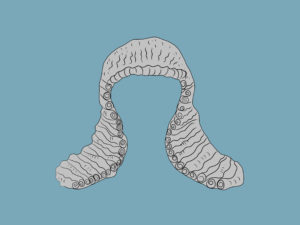
Mental Disorder and the Law
- News
- 1 Jun 2016
In November 2014, The Death Penalty Project (DPP) published Behind the Prison Gates, a report on Belize Central Prison detailing general issues of concern, with a focus on mentally ill prisoners, young offenders and those serving life sentences. The report include recommendations formulated at one-day roundtable meeting in Belize City by all stakeholders including the prison authorities, the judiciary and the Bar Council. Initiatives, such as a juvenile bail programme, have been successfully implemented with 34 young offenders granted bail.
The DPP has since been working in collaboration with the Chief Justice of Belize and Supreme Court Judge Shona Griffith to design potential activities in order to implement the recommendations and suggestions made in the report, with a focus on mental health law as it relates to the criminal justice system. It was noted that mental health issues are insufficiently raised nor adjudicated upon in criminal cases and this deficiency in the criminal justice system urgently needs to be addressed. In addition, there is, in general, a shortage of resources available for the diagnosis and treatment of mentally ill prisoners.
It is in this context that we held, in association with the Bar Association of Belize, a series of training events in Belize in May 2016. The DPP has vast experience in this field and shared our expertise and experience of our work in the Commonwealth Caribbean:- over the last two decades, the DPP has brought a series of cases where mental health issues are concerned before courts, resulting in convictions being overturned based on fresh medical evidence; between 2011-2015, a series of training workshops were held for members of the judiciary, mental health professionals, defence lawyers and prosecutors in the Commonwealth Caribbean region (Barbados, St Christopher & Nevis, Jamaica and Trinidad & Tobago).
7NewsBelize.com summaries the week of events in Belize City, which were held between 25th-27th May 2016:-
‘The Mentally Ill and the Law’
How to deal “legally” with mentally ill persons who break the law? The situation is not uncommon to Belize and recently we have seen major crimes perpetrated by mental health patients. The Death Penalty Project, a London-based NGO, is here in Belize to host a three day workshop in an attempt to at the very least, create a baseline protocol for dealing with the mentally ill within existing laws.
We spoke to the event organizer this morning and he told us about the importance of hosting such an event in Belize.
Parvais Jabbar, Co Exec. Dir., The death Penalty Project.
“We’ve been working in Belize now for over 20 years on individual cases representing prisoners who had been sentenced to death. Over that period of time, we got to know the country very well, we have very good relationships with lawyers and other organizations here and one area that we wanted to explore was the criminal justice system. A couple years ago, together with other stakeholders in Belize, we launched a report ‘Behind the Prison Gates’ which looked at issues that were important not only in relation to death row prisoners, but other vulnerable prisoners such as juveniles, mentally disordered, and so on. As a result of this report and some of the findings and recommendations that were agreed and considered by a number of important stakeholders in Belize, together with the Chief Justice and with the Belize Bar Association, we agreed to hold a number of training workshops and seminars looking at mental health and the law.”
Reporter
“Why is it important to look at that particular aspect of legal processes, especially considering people with mental health issues?”
Parvais Jabbar, Co Exec. Dir., The death Penalty Project.
“It’s one of the most important areas that is being looked at all over the world. There is serious concern about how mental health is dealt with within the criminal justice system and how it is applied and used in individual cases. So as a result of that, what we have found, not only in Belize but in the many jurisdictions, is that people suffering from mental disorder whether it be some mental illness or some intellectual disability. These individuals need to be treated and considered in specific ways when looking at the administration of justice.”
Today’s session was a closed workshop for Belizean judges. The seminar is being organized by the Death Penalty Project in collaboration with the Bar Association and the office of the Chief Justice.




















